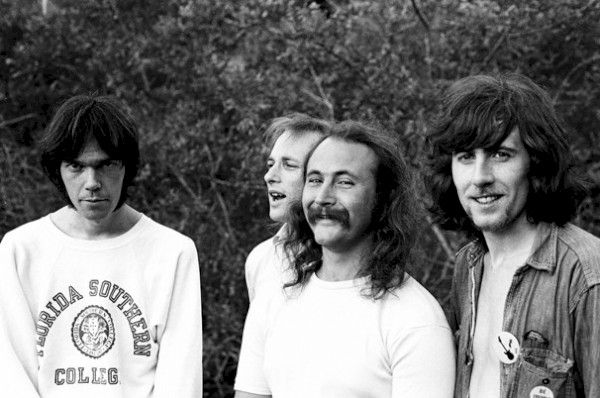Steve Martin and His Long Lasting Effect on Stand Up Comedy
- Lucy Denning

- Apr 1, 2025
- 4 min read
Stand-up comedy began to flourish in the 1960s and 70s, stand-up comedians were selling out halls and really making names for themselves. The standout being Steve Martin. In comparison to other comedians of his generation, Steve Martin was a revolutioniser, due to not only his game changing stand-up style, but also due to the ripple effect that he has had on comedians of the next generation. What is going to be explored here is what exactly makes somebody a ‘game changer’ in the field of stand-up comedy.
In Tracy Wuster’s 2006 article “Comedy Jokes: Steve Martin and the Limits of Stand-Up Comedy”, Wuster claims that Steve Martin was one of the most successful and game changing stand-up comedians of the late 20th century, due to his constant testing of stand-up limits and revolutionising what is funny. This intention is very clear throughout the entirety of the article, because of Wuster continuously drawing back to her main point which is, Martin revolutionised stand-up comedy. Overall, this article was fairly subjective by nature, as the entirety of the article is very openly Wuster’s take on Martin’s career as a stand-up comedian. However, the subjectivity of the article is quite hidden, due to Wuster continuously blurring the line between objectivity and subjectivity by avoiding absolutes and flowing from point to point seamlessly. Comedy itself is subjective, the idea of what is ‘funny’ differs from person to person, so analysing what parts of this article are subjective and what is not becomes difficult as the subject of what is considered to be funny does not lend itself to pure facts and scientific data. Given this, Wuster backs up her beliefs with evidence of other people who agree with her, this in an example of objectivity in the text “Because Martin relies on the stereotypes of comedic performance from previous forms of comedy within the context of stand-up in the late 1970s, it is necessary to sketch out a brief history of comic performance in America in order to place his work within its historical context.” (Wuster, 2006) Wuster then backs up this view by adding “David Bushman locates the historical roots of stand-up in the popularity of minstrelsy in the second half of the nineteenth century, as well as in the platform lecture of the literary comedian, most notably Mark Twain and in Vaudeville” (Wuster, 2006) this can be seen as an example of objectivity in the text and also as evidence. Wuster utilises reliable sources such as David Bushman in this article as well as transcripts from Steve Martin’s stand-up, as evidence that her opinion is valid and can be backed up. The use of this evidence affects the reader and it further signifies what Wuster is trying to convey, adding the transcripts of Martin’s stand-up comedy aids in her point being made. Wuster takes the reader on a journey through Martin’s comedy via a rhythm of narrative and transcripts which unify perfectly. As far as citation goes, the article does not follow proper Harvard-styles in-text citation after every reference, but Wuster does add a bibliography at the end of her article titled ‘Works Cited’, which is still a valid form of referencing.
The effect of Steve Martin is still very present today, his comedy and genius has affected and inspired the new wave of comedians in this generation. While Wuster talks about Vaudeville, as being a big inspiration to Steve Martin, “Vaudeville was especially influential for Martin” (Wuster, 2006) it is important to talk about who Steve Martin inspired. Rolling Stone wrote an article on the highlights from the American Film Institute’s tribute to Steve Martin, it included an array of comedians whose admiration for Steve Martin was obvious in their speeches, while the speeches themselves paid homage to Martin’s style of comedy. Steve Carell for instance, is a great example of a comedian who was heavily and openly inspired by Steve Martin. Steve Carell has spoken many times throughout his career about how Steve Martin inspired his comedy, and the AFI tribute was no exception, “They say imitation is the sincerest form of plagiarism. I have spent the majority of my life doing a pale imitation of Steve Martin, and I resent him for this.” (Carell, 2015) Carell spoke of how Steve Martin inspired his comedy and aided in his building comedic character “He impacted me in such a deep lasting way. I owe everything to him.” (Carell, 2015) Another example of Carell’s admiration was when Steve Martin was receiving the Kennedy Center Honor, “I am in awe of Steve Martin, I admire his career, I respect him more than anyone” (Carell, 2007) he went on to sincerely address Martin, “It’s truly the greatest honour of my life to pay tribute to you. Our world is richer because you are a part of it” (Carell, 2007). Steve Martin is a comedian that comedians love, the line-up of celebrities paying tribute to Martin is impressive enough, even just on paper, Tina Fey, Diane Keaton, Carl Reiner, Martin Short and Tom Hanks to name just a few, but it is their genuine adoration of not only Martin’s comedy, but Steve Martin himself that is what’s truly monumental and this is what makes somebody a game changer in comedy.
References
Plitt, A 2015, '10 Funniest Lines From Steve Martin’s AFI Tribute', Rolling Stone, viewed 18 March 2021, https://www.rollingstone.com/tv/tv-news/10-funniest-lines-from-steve-martins-afi-tribute-72801/.
'Steve Carell - Steve Martin Tribute | 2007 Kennedy Center Honors' 2017, www.youtube.com, viewed 19 March 2021, https://www.youtube.com/watch?v=eWSKf75d8YM.
Wuster, T 2006, 'Comedy Jokes: Steve Martin and the Limits of Stand-Up Comedy' Studies in American Humor, vol. New Series 3, no. No. 14, pp. 23–45, viewed 18 March 2021, .










Easy to read
Great information
He is one of the best for sure!
Excellent work Luce !!! ❤️